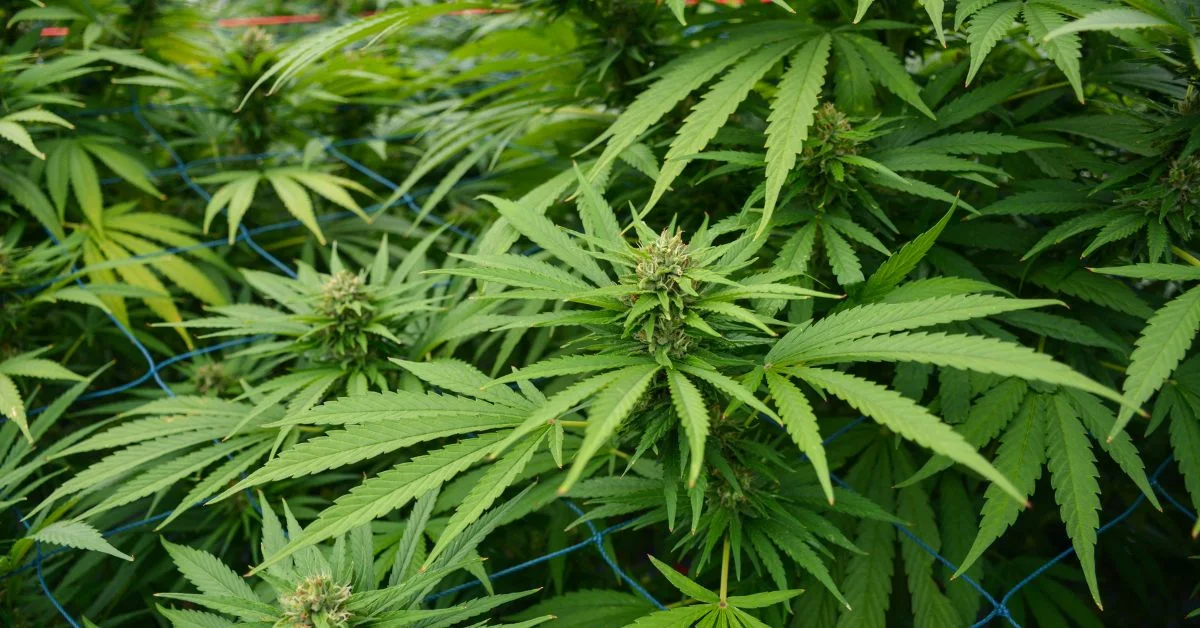In an industry once clouded by misunderstanding and regulatory barriers, Sugar Hemp Farms has quietly emerged as a pioneering example of what the next era of hemp agriculture can look like. Whether you are a conscious consumer, a health and wellness enthusiast, or an agriculture investor, understanding Sugar Hemp Farms offers critical insights into how hemp can be grown with care, integrity, and purpose.
Hemp is no longer just a niche crop. In 2025, it supports a multi-billion-dollar market spanning therapeutic CBD products, sustainable textiles, bio-plastics, and soil regeneration. Sugar Hemp Farms exemplifies a unique convergence of science, soil stewardship, and market responsiveness. This article explores how this farm is setting benchmarks in quality, sustainability, and transparency.
The Origins of Sugar Hemp Farms
Founded in the early 2020s during a volatile period in the hemp market, Sugar Hemp Farms was not born out of hype but of purpose. Its founders, a group of agronomists and environmental scientists, sought to prove that hemp could serve both commercial demand and ecological restoration.
With a modest 50-acre parcel in Oregon, they adopted regenerative farming methods—eschewing synthetic inputs and monoculture—in favor of soil-building, biodiversity, and ethical labor practices. Unlike many growers chasing scale and extraction volume, Sugar Hemp Farms focused on whole-plant value: quality over quantity.
What Sets Sugar Hemp Farms Apart in 2025
1. Regenerative Agriculture Practices
Sugar Hemp Farms relies heavily on regenerative farming—going beyond organic. They rotate hemp with nitrogen-fixing cover crops, integrate livestock in controlled grazing patterns, and avoid tilling to preserve mycorrhizal fungi networks. This not only sustains yields but actually improves soil carbon content over time.
Their soil tests are publicly available, showing how carbon sequestration on the farm has increased annually since its inception.
2. Seed-to-Shelf Transparency
Every product made with Sugar Hemp hemp—from full-spectrum tinctures to CBD-infused skincare—comes with a digital QR code. Scanning it reveals that batch’s planting date, harvesting method, cannabinoid profile, and third-party lab results.
This approach reflects a broader shift: consumers demand not just product effectiveness, but proof of ethical sourcing and purity.
3. In-House Processing and Vertical Integration
Unlike many hemp farms that sell biomass to third parties, Sugar Hemp Farms processes their material in-house using low-heat extraction methods that preserve minor cannabinoids and terpenes. This vertical integration ensures chemical-free, potent, and consistent end-products.
They’ve also launched educational media on solvent-free extraction, creating awareness among hobbyists and small-scale producers.
4. Biodiversity Over Monoculture
The farm uses intercropping techniques, planting beneficial herbs like calendula and chamomile alongside hemp. Not only do these plants attract pollinators, but they also serve as natural pest deterrents. This biodiversity reduces the need for human intervention and supports local ecosystems.
Product Line and Impact on the Market
Sugar Hemp Farms offers a curated range of products that avoid gimmicks and unsubstantiated claims. Their line includes:
- Full-spectrum CBD oils
- CBG and CBC-dominant formulas
- Topicals with native botanicals
- Organic hemp flower for vaporization
Each product comes with full traceability and consumer-facing data.
Setting an Example in an Overcrowded Market
In a world flooded with white-labeled hemp products and questionable sourcing, Sugar Hemp Farms’ insistence on direct-to-consumer sales, education, and soil regeneration stands out. Their slow-scaling model is becoming a blueprint for boutique hemp brands looking to compete without compromising ethics.
Collaborations and Community
Sugar Hemp Farms isn’t working in isolation. They’ve launched partnerships with local indigenous farming cooperatives, paying homage to native stewardship traditions. The farm also runs workshops for regenerative farming, attracting a growing community of young agriculturalists interested in climate-resilient practices.
Their internship program, focusing on hands-on agroecology and cannabinoid science, has placed graduates into both academic and commercial sectors.
A New Role for Hemp in Climate-Smart Agriculture
Hemp’s ability to remediate soil, sequester carbon, and replace fossil-fuel-based products positions it as a key ally in climate-focused farming. Sugar Hemp Farms participates in USDA pilot programs measuring carbon offset through regenerative practices, serving as a live case study.
Their goal? Not just to farm sustainably, but to quantify sustainability in ways regulators and consumers can understand.
The Consumer Experience: Not Just a Product, but a Story
Sugar Hemp Farms focuses on experience as much as efficacy. Buyers receive:
- Detailed planting-to-harvest timelines
- Lab analysis of cannabinoid and terpene profiles
- Educational content on hemp’s botanical role
- Access to seasonal farm reports and soil data
This elevates the transaction from product purchase to participation in a regenerative system.
Market Position and Outlook for 2025 and Beyond
Sugar Hemp Farms operates in a premium niche but is influencing broader market behavior. With tightening FDA regulations, consumer pressure for clean-label transparency, and climate reporting mandates, many mass producers may have to pivot to models closer to Sugar Hemp’s.
Their modest but expanding market share is proving that ethics and profitability are not mutually exclusive. As global supply chains fragment and consumers seek verified origin stories, their model offers resilience.
They plan to expand through:
- Licensing their regenerative model to other farms
- Creating a decentralized processing network
- Launching an educational online platform
Conclusion
Sugar Hemp Farms is more than just a hemp producer—it is a living prototype of how modern agriculture can reconcile ecological integrity with economic viability. In a landscape where “organic” is no longer enough and “local” has become a marketing trope, Sugar Hemp is showing that transparency, soil health, and consumer education can form the foundation of a better hemp economy.
If the future of hemp is one of regeneration, participation, and accountability, then Sugar Hemp Farms is already there.
Frequently Asked Questions
1. What does Sugar Hemp Farms grow?
They specialize in high-cannabinoid hemp grown regeneratively, including CBD, CBG, and CBC-rich strains.
2. Are Sugar Hemp products certified organic?
Yes, and they go beyond organic with regenerative practices like cover cropping, zero tilling, and compost integration.
3. Where can I buy Sugar Hemp products?
Products are available through their website, with full traceability and lab results linked to each batch.
4. Do they offer farm tours or education?
Yes, seasonal farm tours, regenerative farming workshops, and internships are core parts of their mission.
5. Is Sugar Hemp Farms involved in sustainability research?
Absolutely. They participate in carbon sequestration studies and USDA programs tracking regenerative outcomes on farmland.
For more information, click here.









